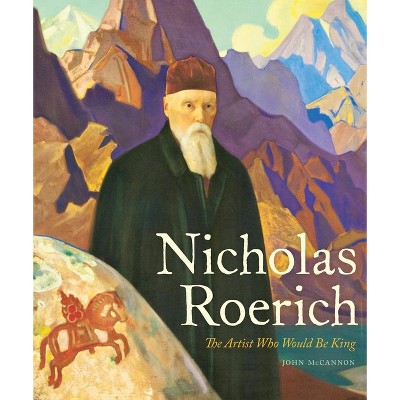Sponsored

Song of the Forest - (Russian and East European Studies) by Stephen Brain (Paperback)
$50.00Save $5.00 (9% off)
In Stock
Eligible for registries and wish lists
Sponsored
About this item
Highlights
- The Soviets are often viewed as insatiable industrialists who saw nature as a force to be tamed and exploited.
- About the Author: Stephen Brain is assistant professor of history at Mississippi State University.
- 240 Pages
- History, Russia & the Former Soviet Union
- Series Name: Russian and East European Studies
Description
About the Book
The Soviets are often viewed as insatiable industrialists who saw nature as a force to be tamed and exploited. Song of the Forest counters this assumption, uncovering significant evidence of Soviet conservation efforts in forestry, particularly under Josef Stalin. Stephen Brain profiles the leading Soviet-era conservationists, agencies, and administrators, and their efforts to formulate forest policy despite powerful ideological differences.Book Synopsis
The Soviets are often viewed as insatiable industrialists who saw nature as a force to be tamed and exploited. Song of the Forest counters this assumption, uncovering significant evidence of Soviet conservation efforts in forestry, particularly under Josef Stalin. In his compelling study, Stephen Brain profiles the leading Soviet-era conservationists, agencies, and administrators, and their efforts to formulate forest policy despite powerful ideological differences. By the time of the revolution of 1905, modern Russian forestry science had developed an influential romantic strand, especially prevalent in the work of Georgii Morozov, whose theory of u201cstand typesu201d asked forest managers to consider native species and local conditions when devising plans for regenerating forests. After their rise to power, the Bolsheviks turned their backs on this tradition and adopted German methods, then considered the most advanced in the world, for clear-cutting and replanting of marketable tree types in u201cartificial forests.u201d Later, when StalinÆs Five Year Plan required vast amounts of timber for industrialization, forest radicals proposed u201cflying management, u201d an exaggerated version of German forestry where large tracts of virgin forest would be clear-cut. Opponents who still upheld MorozovÆs vision favored a conservative regenerating approach, and ultimately triumphed by establishing the worldÆs largest forest preserve. Another radical turn came with the Great Stalin Plan for the Transformation of Nature, implemented in 1948. Narrow u201cbeltsu201d of new forest planted on the vast Russian steppe would block drying winds, provide cool temperatures, trap moisture, and increase crop production. Unfortunately, planters were ordered to follow the misguided methods of the notorious Trofim Lysenko, and the resulting yields were abysmal. But despite Lysenko, agency infighting, and an indifferent peasant workforce, StalinÆs forestry bureaus eventually succeeded in winning many environmental concessions from industrial interests. In addition, the visionary teachings of Morozov found new life, ensuring that the forestÆs song did not fall upon deaf ears.Review Quotes
"Song of the Forest provides an important new interpretation of the impact of Stalinism on Soviet environmentalism. Brain indicates how forestry policies developed under Stalin that were in their own way strongly conservationist. Well-written and easy to read, Brain's study is a welcome contribution to the expanding field of environmental history and will be of interest to specialists in Soviet history, too, for shedding light on the dynamics of Stalinist society."-- "Paul Josephson, Colby College"
A rich and thought-provoking work that is recommended reading for anyone interested in intellectual debates and the environment in Russia and the Soviet Union across the revolutionary divide.-- "Environmental History"
A significant contribution to the small but growing and important field of Soviet environmental history. . . . a rich and thought-provoking work.-- "Environmental History"
An important book for students of Soviet Russia and for environmentalists. It is rich in information about Stalin time and insights for anyone who would learn how little genuine positive change took place in Russian forestry during the entire Soviet period.-- "The Soviet and Post-Soviet Review"
Demonstrates the continuing importance of the forest, such a quintessential part of life in czarist Russia, in the Soviet period. Highly recommended.-- "Choice"
Makes for a lively read . . . is extensively researched, and it is an important contribution to the small but growing field of Soviet environmental history.-- "The Russian Review"
Stephen Brain's book is truly revelatory. Dispensing with simplistic models, Brain has uncovered a uniquely Russian approach to forestry and explains how that approach survived and even partially guided forest management under Stalin--truly a counterintuitive proposition! This is the richest and savviest account of Russian and Soviet forestry in any language and is essential reading for those interested in environmental history, forestry, the history of science, and, not least, Russia and the Soviet Union.-- "Douglas R. Weiner, University of Arizona"
Well written and grounded in extensive archival work with the holdings of the many state agencies responsible for forest administration. Brain's lucid narrative provides an excellent guide to the evolution of policy, its administration, and the effects of its implementation.-- "Slavic Review"
Will change profoundly how [scholars] understand the environmental legacy of the Soviet Union. Offers the most important contribution to Soviet environmental history made to date in the twenty-first century. . . . Engagingly written and well-priced.-- "The NEP Era"
With an extensive examination of bureaucratic records and forestry journals, Stephen Brain has written the remarkable story of the romantic, prerevolutionary Russian forester Georgii Morozov and his posthumous contribution to the unique strain of environmentalism that developed in Joseph Stalin's Soviet Union. In this lucid and engaging book, Brain has recovered a little-known chapter in the history of forestry and significantly reshaped our understanding of the Soviet Union's conservation record.-- "The Historian"
About the Author
Stephen Brain is assistant professor of history at Mississippi State University.Dimensions (Overall): 9.2 Inches (H) x 6.0 Inches (W) x .8 Inches (D)
Weight: .8 Pounds
Suggested Age: 22 Years and Up
Series Title: Russian and East European Studies
Sub-Genre: Russia & the Former Soviet Union
Genre: History
Number of Pages: 240
Publisher: University of Pittsburgh Press
Format: Paperback
Author: Stephen Brain
Language: English
Street Date: October 31, 2011
TCIN: 93282963
UPC: 9780822961659
Item Number (DPCI): 247-12-2500
Origin: Made in the USA or Imported
If the item details aren’t accurate or complete, we want to know about it.
Shipping details
Estimated ship dimensions: 0.8 inches length x 6 inches width x 9.2 inches height
Estimated ship weight: 0.8 pounds
We regret that this item cannot be shipped to PO Boxes.
This item cannot be shipped to the following locations: American Samoa (see also separate entry under AS), Guam (see also separate entry under GU), Northern Mariana Islands, Puerto Rico (see also separate entry under PR), United States Minor Outlying Islands, Virgin Islands, U.S., APO/FPO
Return details
This item can be returned to any Target store or Target.com.
This item must be returned within 90 days of the date it was purchased in store, shipped, delivered by a Shipt shopper, or made ready for pickup.
See the return policy for complete information.
Frequently bought together

$18.88
MSRP $27.00
Buy 2, get 1 free select books, music & movies
4.8 out of 5 stars with 571 ratings
Trending Non-Fiction


$19.31
was $20.98 New lower price
Buy 2, get 1 free select books, music & movies
4 out of 5 stars with 60 ratings

$19.58
MSRP $29.00
Buy 2, get 1 free select books, music & movies
4.6 out of 5 stars with 13 ratings

$4.59
MSRP $7.99
Buy 2, get 1 free select books, music & movies
4.8 out of 5 stars with 120 ratings

$6.20
MSRP $10.95
Buy 2, get 1 free select books, music & movies
4.8 out of 5 stars with 33 ratings

$7.09
MSRP $9.99
Buy 2, get 1 free select books, music & movies
4.9 out of 5 stars with 46 ratings










